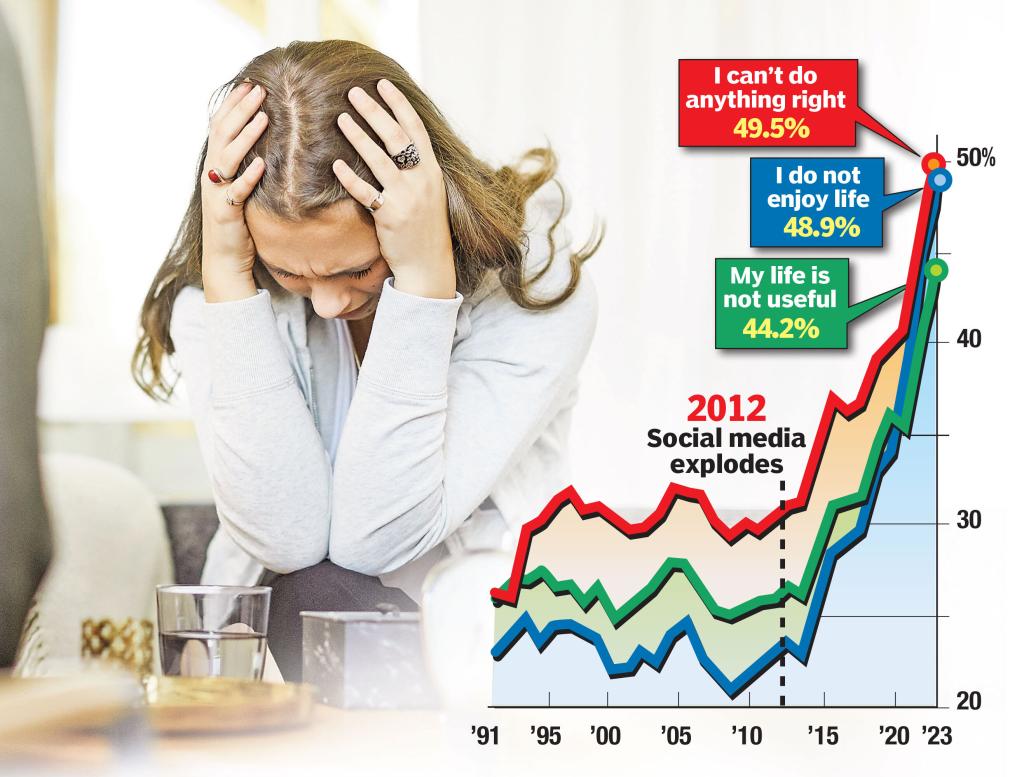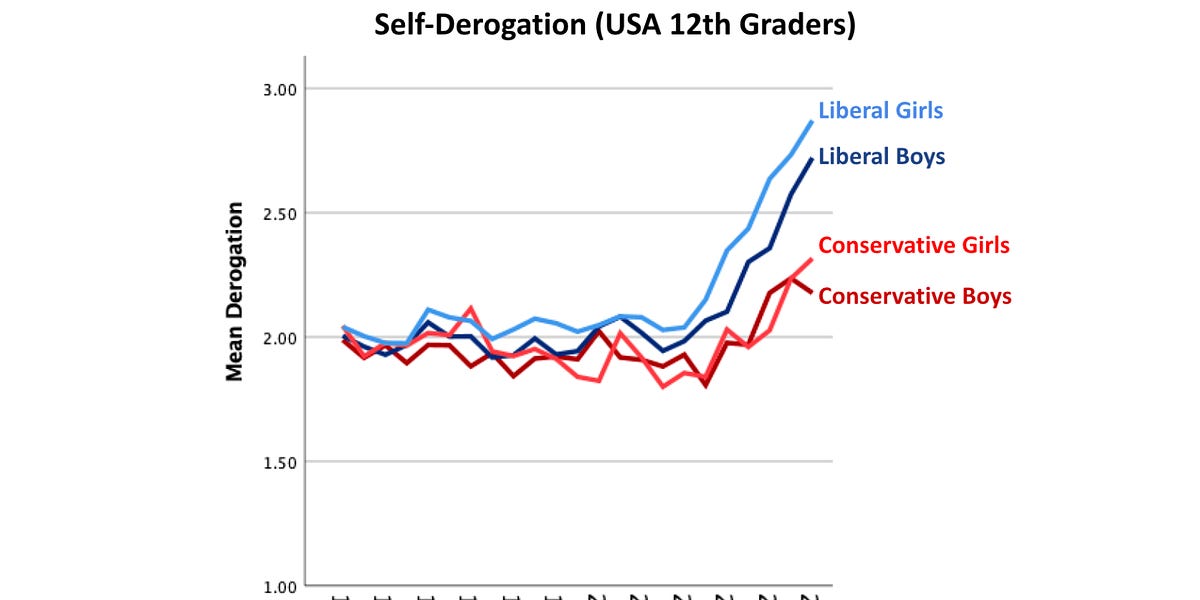In CBT you learn to recognize when your ruminations and automatic thinking patterns exemplify one or more of about a dozen “cognitive distortions,” such as catastrophizing, black-and-white thinking, fortune telling, or emotional reasoning. Thinking in these ways
causes depression, as well as being a
symptom of depression. Breaking out of these painful distortions
is a cure for depression.
What Greg saw in 2013 were students justifying the suppression of speech and the punishment of dissent using the exact distortions that Greg had learned to free himself from. Students were saying that an unorthodox speaker on campus would cause severe harm to vulnerable students (catastrophizing); they were using their emotions as proof that a text should be removed from a syllabus (emotional reasoning). Greg hypothesized that if colleges supported the use of these cognitive distortions, rather than teaching students skills of critical thinking (which is basically what CBT is), then this could
cause students to become depressed. Greg feared that
colleges were performing reverse CBT.
I thought the idea was brilliant because I had just begun to see these new ways of thinking among some students at NYU. I volunteered to help Greg write it up, and in August 2015 our essay appeared in
The Atlantic with the title:
The Coddling of the American Mind. Greg did not like that title; his original suggestion was “Arguing Towards Misery: How Campuses Teach Cognitive Distortions.” He wanted to put the reverse CBT hypothesis in the title.





 It took a cultural anthropology course and Carl Sagan's Cosmos to get me deprogrammed from that crap.
It took a cultural anthropology course and Carl Sagan's Cosmos to get me deprogrammed from that crap.